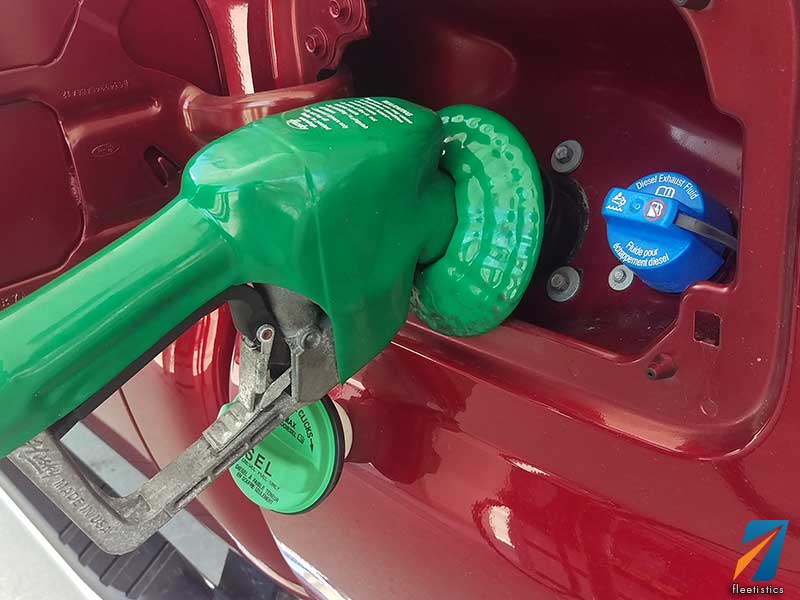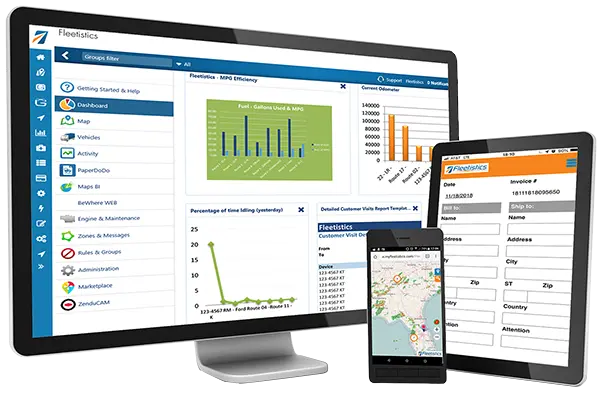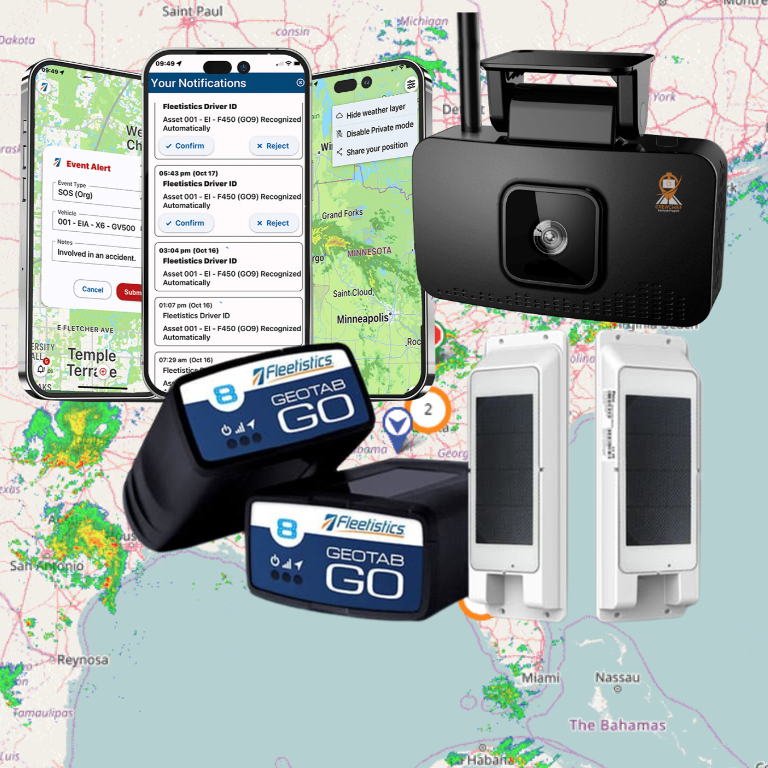Efficiently managing fuel expenses is essential for maximizing profitability and sustainability. In this blog post, we will explore some key strategies and tips that fleet managers can implement to save fuel and increase their bottom line. On average, fuel represents 60% of a company’s total fleet operating budget, and finding ways to save fuel is crucial for both financial and environmental reasons.

Effective Strategies for Fuel Saving
To optimize fuel usage and increase efficiency in fleet management, consider implementing the following strategies:
1. Vehicle Maintenance: Regular vehicle maintenance is essential to ensure optimal fuel efficiency. This includes regularly servicing vehicles, checking tire pressure, and addressing any mechanical issues promptly.
2. Route Optimization: Planning and optimizing routes can help reduce fuel consumption. By using advanced route planning software or GPS systems, fleet managers can identify the most efficient routes that minimize distance, traffic congestion, and idling time.
3. Driver Training: Providing comprehensive driver training programs can significantly impact fuel consumption. By educating drivers on fuel-efficient driving techniques, such as avoiding aggressive acceleration and braking, maintaining a consistent speed, and reducing idle time, fleet managers can help drivers adopt fuel-saving habits.
4. Vehicle Selection: When adding new vehicles to the fleet or replacing older ones, consider selecting fuel-efficient models. By choosing vehicles with better fuel economy ratings, fleet managers can ensure long-term savings on fuel costs.
5. Minimal idling: Encourage drivers to minimize idling times by turning off the engine when parked or waiting for extended periods.
6. Fuel Monitoring: Implementing a fuel monitoring system allows fleet managers to track fuel consumption accurately. By monitoring fuel usage, managers can identify areas of improvement and address any inefficiencies promptly.
7. Technology Integration: Incorporating advanced technologies such as telematics systems and fuel management software can provide real-time data on vehicle performance, fuel consumption, and maintenance needs.
Adopting Eco-friendly Practices in Fleet Management
In addition to the strategies mentioned above, fleets can also adopt eco-friendly practices to save fuel:
- Vehicle Load Optimization: Ensuring that vehicles are not overloaded can help improve fuel efficiency. By carefully considering the weight and distribution of cargo, fleet managers can reduce unnecessary fuel consumption caused by carrying excess weight.
- Eco-Driving Education: Investing in eco-driving education programs can help drivers develop fuel-efficient driving habits. These programs can educate drivers on techniques like smooth acceleration and deceleration, efficient gear shifting, and the use of cruise control.
- Route Planning: Optimizing routes can have a significant impact on fuel consumption. By using route planning software or GPS systems, fleet managers can identify the most fuel-efficient routes for their drivers. When planning routes, factors such as traffic patterns, road conditions, and the proximity of fuel stations can be taken into account to minimize unnecessary mileage and optimize fuel efficiency.
- Monitoring and Controlling Idle Time: Excessive idling is a major source of fuel waste in fleet management. Implementing measures to monitor and control idle time can lead to significant fuel savings.

Incorporating Technology for Fuel Savings
Incorporating technology into fleet management can greatly contribute to fuel savings. Telematics systems and fuel management software can provide real-time data on vehicle performance, fuel consumption, and maintenance needs. This data allows fleet managers to make informed decisions and take proactive measures to optimize fuel efficiency. For example, telematics systems can track driver behavior and provide feedback on fuel-wasting habits such as excessive idling, hard braking, and speeding. By addressing and correcting these habits, fleet managers can significantly reduce fuel consumption.
Impact of Driver Behavior on Fuel Consumption
One crucial factor that can significantly impact fuel savings in fleet management is driver behavior. Drivers play a crucial role in fuel efficiency. Their actions behind the wheel can either contribute to fuel savings or lead to unnecessary consumption. Fleet managers should prioritize driver training and communication to promote fuel-efficient driving habits. This can include providing regular reminders and incentives for eco-driving, as well as addressing any concerns or questions drivers may have regarding fuel-saving techniques. In addition, fleet managers can implement driver performance monitoring systems that provide feedback on fuel-wasting habits and encourage drivers to improve their behavior. By focusing on driver behavior, fleet managers can increase fuel efficiency and overall savings.
Successful Fuel Saving Tips in Fleet Management
- By implementing a comprehensive fuel management program that includes driver training, vehicle maintenance optimization, and the use of telematics systems to monitor and control idle time, companies are able to achieve a 10% reduction in fuel consumption across their fleet.
- Delivery Services can introduce a driver incentive program that encourages fuel-efficient driving behavior. Drivers who consistently achieve fuel-saving targets can be rewarded with bonuses or other recognition. As a result, Delivery Services will see a significant decrease in fuel consumption by 15% and improved driver morale and engagement.
- Logistics companies can implement a vehicle optimization strategy by analyzing their routes and making adjustments to reduce mileage and idle time. Through this approach, they can reduce fuel consumption by 12% and save on maintenance costs associated with excessive wear and tear.
- Courier Services should invest in technology that allows them to optimize their routes and plan for more efficient deliveries. They will be able to reduce fuel consumption by 20% and decrease their overall carbon footprint.
Implementing these strategies can help fleet managers save fuel and reduce operating costs. Fuel management solution helps you track, monitor and analyze your fuel consumption with simplified reports and alerts.














